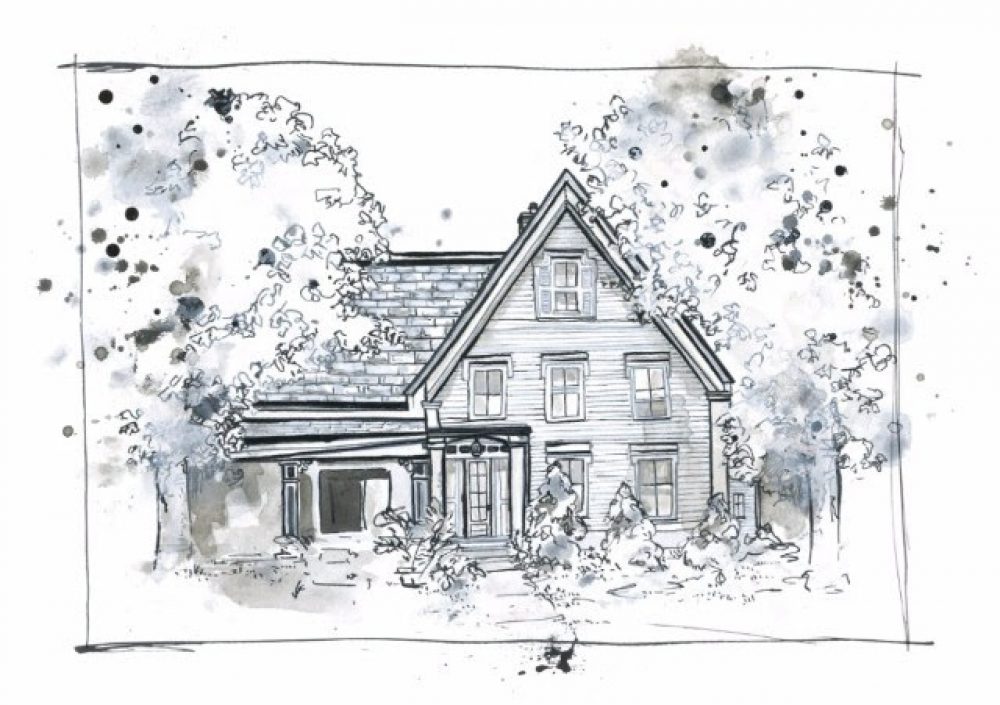Dear Milk Streeter
Two feet of snow just fell—three feet in some places. My neighbor Doug showed me a photo of a snow blower that was almost buried by towering drifts. He shared a good trick for shoveling snow: Set the blower against a solid pile of snow, tape the throttle open, then shovel snow into the front end. Works great when you are trying to move a large mound of the white stuff.
Rabbit season just ended. “Rabbit hunter Tom” had a good year, getting two of his beagles—Nick and Nellie—out in the field more than a few times to give them practice. Fishing season opens in April, turkey in May, and mud season is just around the corner. Some neighbors give “mud season” parties to celebrate the end of winter. More beer and more fun than a Christmas party!
And that reminds me of other curious celebrations. The corner house on SE Corners Road has seen many movie evenings (films rented from the Vermont Department of Agriculture; the last one I saw was on the subject of growing and cooking rutabaga). Bachelor farmers in dark green pants sat on worn, throw-rug sofas, half the party in the kitchen fussed with casseroles, salads and baked beans, and kids outside threw rocks into the Green River. The corner house was also the site of our July 4th celebration. The parade included a bandwagon pulled by one of Junior’s teams, tractors, riders on horseback carrying flags, and an old Model T. Most years a donkey wearing a spangled Uncle Sam hat was hitched to a dog cart. We rode a few miles up to the swimming hole in the Green River, let the team out into high pasture and returned to the Corner House for dogs, burgers, sausages, salads and a July 4th sheet cake. The small gas grill hadn’t been cleaned since it was purchased, probably 20 years before, but nobody seemed to notice.
Perhaps the best parties were given back in the 1970s by Bunny and her husband, Lothar. They were hippies—she drove a yellow VW bus when she first arrived back in the '60s—and they bought an old farmhouse for short money. The well was no good, it was poorly insulated, and the two of them knew nothing about country living; they were pavement not dirt people. But they turned part of a small barn into a sauna and it was a popular spot on Saturday nights among the younger set. More than one friendship was born in that darkness, sitting naked on a wooden bench with hot steam and a candle for company. And the “compost soup” was good—they kept adding to the soup day after day, just like making compost. The house was eventually decorated with homemade art. Lothar was a sculptor and fashioned the house’s centerpiece: a giant carved wooden goddess with perfect children standing on her lap.
In the old days, there was a dance hall up by Hurd’s General Store, but it burned down. I knew old-timers who remembered hitching up a horse to a carriage on a cold winter’s night with blankets to keep warm, then headed toward the dance. There was liquor and fistfights from time to time. One partygoer was said to have climbed the steps up to the dance hall, then was knocked right back down again, though the true old-timers were teetotalers. And the grange in the next town, on the banks of the Battenkill by the covered bridge, is still a good party spot from time to time if you don’t count bingo and chicken dinners at the volunteer firehouse up the road or the Old Home Day celebration and carnival the second weekend in August. We even had fireworks this year to keep up with the competition.
The longest running party is still the Ox Roast featuring the slowest moving heifer in town. Coals are built up overnight, the quartered animal is placed between bed springs, then turned on a makeshift rotisserie. Hay bales make up the tables, everyone brings a covered dish, salad or dessert. We roast corn on the coals, and huge tin containers of iced tea are lined up by the side of Susie and Valerie’s house. (Liquor is not encouraged.) The entertainment consists of cloggers clogging on sheets of plywood, a three-piece roving band (fiddler, guitar and doghouse base) and then square dancing under the stars. We shuck the oyster into the night.
Many say that the old times were the best. Well, they were hard times for sure—money was scarce—but when you have to make your own fun, you enjoy it more, even if it’s an evening watching a film about growing rutabagas!
All the best.

Christopher Kimball




